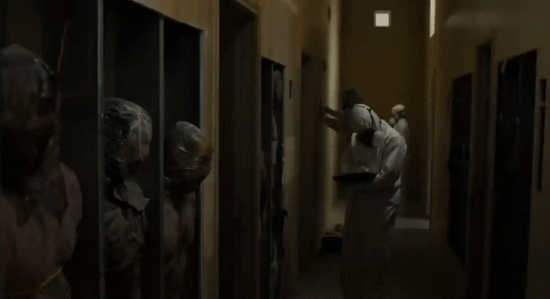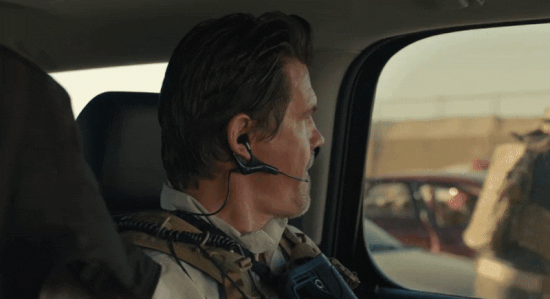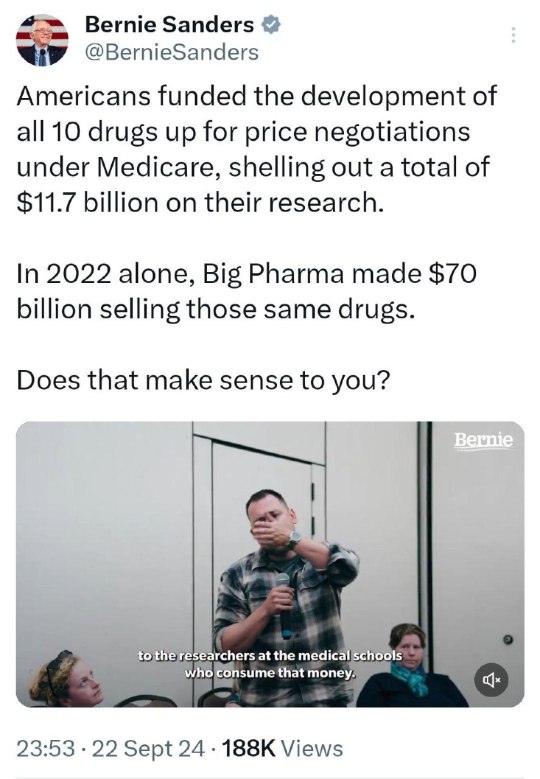#drug trade
Explore tagged Tumblr posts
Text








‘‘Listen… nothing will make sense to your American ears. And you will doubt everything that we do. But, in the end, you will understand.’’
//sicario/2015/ //dir_denis_villeneuve/
#cinema#sicario#denis villeneuve#emily blunt#benicio del toro#josh brolin#daniel kaluuya#movies#drug trade#thrillers#CIA#FBI#filmmaking#cinematography#i made some GIFs#myGIF
147 notes
·
View notes
Text
"Agadez has long been a transit point for people trying to pass through north Africa and across the Mediterranean to Europe. Now the Nigerien city is a hub for the flow of drugs heading towards Europe too.
For those such as Azizou Chehou, trying to provide support for the increasingly desperate migrants coming through the city, the impact of the greater availability of cocaine on the streets is clear. Agadez is in the grip of an addiction crisis and its biggest victims, says Chechou, are female migrants.
“Women are held by traffickers in houses where men pass by and use them,” says Chehou, who runs a Nigerien development organisation in Agadez. “When they have paid that debt these women are passed to another trafficker. Even after leaving a trafficker, the women are caught in a cycle of dependence on earning money from sex work and drug use to block out the nightmares.”
Chehou and others in Agadez say the recent increase in the amount of cocaine in Niger is to blame for the addiction crisis, which the local health system is ill-equipped to cope with."
13 notes
·
View notes
Text
Mexico makes largest fentanyl bust days after Trump tariff threat
Mexican soldiers and marines seized more than a tonne of fentanyl tablets in two raids in the north of the country, in what officials called the largest catch of the synthetic opioid in the country’s history, Mexican media reported.
The raids came after a sharp drop in fentanyl seizures in Mexico earlier this year and days after US President-elect Donald Trump threatened to impose 25 per cent tariffs on goods from Canada and Mexico if those countries did not take action to stem the flow of migrants and drugs across the border.
Experts say the timing coincidence may not be coincidental. Security analyst David Saucedo said:
“It is clear that the Mexican government has been managing the timing of fentanyl seizures. But under the pressure by Donald Trump, it appears President Claudia Sheinbaum’s administration is willing to the increase the capture of drug traffickers and drug seizures that Washington is demanding.”
Saucedo said it is clear that the Mexican government “does not consider fentanyl one of its problems, and fighting it is not its priority.” He added that major detentions would only be made “under pressure from Washington.”
Mexico’s top security official said soldiers and Marines spotted two men with guns late Tuesday in the northern state of Sinaloa, where the eponymous drug cartel is based. They chased the men, who ran into two homes. Soldiers found about 660 pounds of fentanyl in one of the homes and a truck containing about 1,750 pounds of the drug, mostly in pill form, in the other.
“In Sinaloa, we achieved the biggest seizure in history of fentanyl,” Public Safety Secretary Omar Garcia Harfuch wrote on his social media accounts. Several weapons were also seized and two men were arrested.
In the past, Mexican security forces have sometimes used the story of armed men running into homes as an excuse to enter a home without a search warrant. In at least one case, the government’s version was disproved by surveillance footage.
The latest batch is striking in that fentanyl seizures in Mexico dropped sharply in the first half of the year. At some points in the summer, under former President Andres Manuel Lopez Obrador, federal forces reported seizures of no more than 50 grams (2 ounces) per week.
Data for the first half of 2024 show that from January to June, Mexican federal forces seized only 286 pounds (130 kilograms) of fentanyl nationwide, 94% less than the 5,135 pounds (2,329 kilograms) seized in 2023.
Read more HERE

#world news#news#world politics#mexico#mexico 24#mexican politics#drugs#drug addikt#addiction#drugs addict#drug trafficking#drug trade#usa#usa politics#usa news#united states of america#united states#donald trump#donald trump 2024#trump#trump 2024#republicans
2 notes
·
View notes
Text

David Caruso in CSI Miami (2002) Dispo Day
S1E18
A drugs transport to incineration is attacked by a well-armed gang, but a woman shouting for help for her baby rather distracts Horatio and Speed, whose gun is jammed, but a bullet-proof vest saves his life. Only SWAT sergeant Hollis is killed, but as ballistics later establishes from a distant spot. Horatio finds the woman isn't the baby's mother, she was hired by a drugs gang. CSI is suspected of tipping them off, especially after Calleigh tests positive for cocaine, but Horatio traces that to a nearby spot suitable for the sniper. The fiends even left one of their own, badly wounded Lester Cassidy, behind to die in Paul Tomassi's workshop after consulting suspended MD Guillermo Santoyo.
*This is one of David Caruso's favorite episodes from Season 1 as he gets to use his firearm in the opening teaser.
#CSI Miami#tv series#2002#2003 episode#Dispo Day#S1E18#drugs transport#shootout#practicing medicine without license#sniper#murder of a police officer#lie detector#drug trade#David Caruso#action#crime#drama#mystery#thriller#just watched
4 notes
·
View notes
Text
The Taliban government in Afghanistan – the nation that until recently produced 90% of the world’s heroin – has drastically reduced opium cultivation across the country. Western sources estimate an up to 99% reduction in some provinces. This raises serious questions about the seriousness of U.S. drug eradication efforts in the country over the past 20 years. And, as global heroin supplies dry up, experts tell MintPress News that they fear this could spark the growing use of fentanyl – a drug dozens of times stronger than heroin that already kills more than 100,000 Americans yearly.
[...]
The Taliban’s successful campaign to eradicate drug production has cast a shadow of doubt over the effectiveness of American-led endeavors to achieve the same outcome. “It prompts the question, ‘What were we actually accomplishing there?!'” remarked Hoh, underscoring:
This undermines one of the fundamental premises behind the wars: the alleged association between the Taliban and the drug trade – a concept of a narco-terror nexus. However, this notion was fallacious. The reality was that Afghanistan was responsible for a staggering 80-90% of the world’s illicit opiate supply. The primary controllers of this trade were the Afghan government and military, entities we upheld in power.”
Hoh clarified that he never personally witnessed or received any reports of direct involvement by U.S. troops or officials in narcotics trafficking. Instead, he contended that there existed a “conscious and deliberate turning away from the unfolding events” during his tenure in Afghanistan.’
Suzanna Reiss, an academic at the University of Hawaii at Manoa and the author of “We Sell Drugs: The Alchemy of U.S. Empire,” demonstrated an even more cynical perspective on American counter-narcotics endeavors as she conveyed to MintPress:
The U.S. has never really been focused on reducing the drug trade in Afghanistan (or elsewhere for that matter). All the lofty rhetoric aside, the U.S. has been happy to work with drug traffickers if the move would advance certain geopolitical interests (and indeed, did so, or at least turned a knowingly blind eye, when groups like the Northern Alliance relied on drugs to fund their political movement against the regime.).”
Afghanistan’s transformation into a preeminent narco-state owes a significant debt to Washington’s actions. Poppy cultivation in the 1970s was relatively limited. However, the tide changed in 1979 with the inception of Operation Cyclone, a massive infusion of funds to Afghan Mujahideen factions aimed at exhausting the Soviet military and terminating its presence in Afghanistan. The U.S. directed billions toward the insurgents, yet their financial needs persisted. Consequently, the Mujahideen delved into the illicit drug trade. By the culmination of Operation Cyclone, Afghanistan’s opium production had soared twentyfold. Professor Alfred McCoy, acclaimed author of “The Politics of Heroin: CIA Complicity in the Global Drug Trade,” shared with MintPress that approximately 75% of the planet’s illegal opium output was now sourced from Afghanistan, a substantial portion of the proceeds funneling to U.S.-backed rebel factions.
Unraveling the Opioid Crisis: An Impending Disaster
The opioid crisis is the worst addiction epidemic in U.S. history. Earlier this year, Department of Homeland Security Secretary Alejandro Mayorkas described the American fentanyl problem as “the single greatest challenge we face as a country.” Nearly 110,000 Americans died from drug overdoses in 2021, fentanyl being by far the leading cause. Between 2015 and 2021, the National Institute of Health recorded a nearly 7.5-fold increase in overdose deaths. Medical journal The Lancet predicts that 1.2 million Americans will die from opioid overdoses by 2029.
U.S. officials blame Mexican cartels for smuggling the synthetic painkiller across the southern border and China for producing the chemicals necessary to make the drug.
White Americans are more likely to misuse these types of drugs than other races. Adults aged 35-44 experience the highest rates of deaths, although deaths among younger people are surging. Rural America has been particularly hard hit; a 2017 study by the National Farmers Union and the American Farm Bureau Federation found that 74% of farmers have been directly impacted by the opioid epidemic. West Virginia and Tennessee are the states most badly hit.
For writer Chris Hedges, who hails from rural Maine, the fentanyl crisis is an example of one of the many “diseases of despair” the U.S. is suffering from. It has, according to Hedges, “risen from a decayed world where opportunity, which confers status, self-esteem and dignity, has dried up for most Americans. They are expressions of acute desperation and morbidity.” In essence, when the American dream fizzled out, it was replaced by an American nightmare. That white men are the prime victims of these diseases of despair is an ironic outgrowth of our unfair system. As Hedges explained:
White men, more easily seduced by the myth of the American dream than people of color who understand how the capitalist system is rigged against them, often suffer feelings of failure and betrayal, in many cases when they are in their middle years. They expect, because of notions of white supremacy and capitalist platitudes about hard work leading to advancement, to be ascendant. They believe in success.”
In this sense, it is important to place the opioid addiction crisis in a wider context of American decline, where opportunities for success and happiness are fewer and farther between than ever, rather than attribute it to individuals. As the “Lancet” wrote: “Punitive and stigmatizing approaches must end. Addiction is not a moral failing. It is a medical condition and poses a constant threat to health.”
A “Uniquely American Problem”
Nearly 10 million Americans misuse prescription opioids every year and at a rate far higher than comparable developed countries. Deaths due to opioid overdose in the United States are ten times more common per capita than in Germany and more than 20 times as frequent in Italy, for instance.
Much of this is down to the United States’ for-profit healthcare system. American private insurance companies are far more likely to favor prescribing drugs and pills than more expensive therapies that get to the root cause of the issue driving the addiction in the first place. As such, the opioid crisis is commonly referred to as a “uniquely American problem.”
Part of the reason U.S. doctors are much more prone to doling out exceptionally strong pain medication relief than their European counterparts is that they were subject to a hyper-aggressive marketing campaign from Purdue Pharma, manufacturers of the powerful opioid OxyContin. Purdue launched OxyContin in 1996, and its agents swarmed doctors’ offices to push the new “wonder drug.”
Yet, in lawsuit after lawsuit, the company has been accused of lying about both the effectiveness and the addictiveness of OxyContin, a drug that has hooked countless Americans onto opioids. And when legal but incredibly addictive prescription opioids dry up, Americans turned to illicit substances like heroin and fentanyl as substitutes.
Purdue Pharma owners, the Sackler family, have regularly been described as the most evil family in America, with many laying the blame for the hundreds of thousands of overdose deaths squarely at their door. In 2019, under the weight of thousands of lawsuits against it, Purdue Pharma filed for bankruptcy. A year later, it plead guilty to criminal charges over its mismarketing of OxyContin.
Nevertheless, the Sacklers made out like bandits from their actions. Even after being forced last year to pay nearly $6 billion in cash to victims of the opioid crisis, they remain one of the world’s richest families and have refused to apologize for their role in constructing an empire of pain that has caused hundreds of thousands of deaths.
Instead, the family has attempted to launder their image through philanthropy, sponsoring many of the most prestigious arts and cultural institutions in the world. These include the Guggenheim Museum and the Metropolitan Museum of Art in New York City, Yale University, and the British Museum and Royal Academy in London.
One group who are disproportionately affected by opioids like OxyContin, heroin and fentanyl are veterans. According to the National Institutes of Health, veterans are twice as likely to die from overdose than the general population. One reason for this is bureaucracy. “The Veterans Administration did a really poor job in the past decades with their pain management, particularly their reliance on opioids,” Hoh, a former marine, told MintPress, noting that the V.A. prescribed dangerous opioids at a higher rate than other healthcare agencies.
Ex-soldiers often have to cope with chronic pain and brain injuries. Hoh noted that around a quarter-million veterans of Afghanistan and Iraq have traumatic brain injuries. But added to that are the deep moral injuries many suffered – injuries that typically cannot be seen. As Hoh noted:
Veterans are turning to [opioids like fentanyl] to deal with the mental, emotional and spiritual consequences of the war, using them to quell the distress, try to find some relief, escape from the depression, and deal with the demons that come home with veterans who took part in those wars.”
Thus, if the Taliban’s opium eradication program continues, it could spark a fentanyl crisis that might kill more Americans than the 20-year occupation ever did.
Broken Society
If diseases of despair are common throughout the United States, they are rampant in Afghanistan itself. A global report released in March revealed that Afghans are by far the most miserable people on Earth. Afghans evaluated their lives at 1.8 out of 10 – dead last and far behind the top of the pile Finland (7.8 out of 10).
Opium addiction in Afghanistan is out of control, with around 9% of the adult population (and a significant number of children) addicted. Between 2005 and 2015, the number of adult drug users jumped from 900,000 to 2.4 million, according to the United Nations, which estimates that almost one in three households is directly affected by addiction. As opium is frequently injected, blood-transmitted conditions like HIV are common as well.
The opioid problem has also spilled into neighboring countries such as Iran and Pakistan. A 2013 United Nations report estimated that almost 2.5 million Pakistanis were abusing opioids, including 11% of people in the northwestern province of Khyber Pakhtunkhwa. Around 700 people die each day from overdoses.
Empire of Drugs
Given their history, It is perhaps understandable that Asian nations have generally taken far more authoritarian measures to counter drug addiction issues. For centuries, using the illegal drug trade to advance imperial objectives has been a common Western tactic. In the 1940s and 1950s, the French utilized opium crops in the “Golden Triangle” region of Southeast Asia in order to counter the growing Vietnamese independence movement.
A century previously, the British used opium to crush and conquer much of China. Britain’s insatiable thirst for Chinese tea was beginning to bankrupt the country, seeing as China would only accept gold or silver in exchange. The British, therefore, used the power of its navy to force China to cede Hong Kong to it. From there, it flooded mainland China with opium grown in South Asia (including Afghanistan).
The effect of the Opium War was astonishing. By 1880, the British were inundating China with more than 6,500 tons of opium per year – the equivalent of many billions of doses. Chinese society crumbled, unable to deal with the empire-wide social and economic dislocation that millions of opium addicts brought. Today, the Chinese continue to refer to the period as the “century of humiliation”.
Meanwhile, in South Asia, the British forced farmers to plant poppy fields instead of edible crops, causing waves of giant famines, the likes of which had never been seen before or since.
And during the 1980s in Central America, the United States sold weapons to Iran in order to fund far-right Contra death squads. The Contras were deeply implicated in the cocaine trade, fuelling their dirty war through crack cocaine sales in the U.S. – a practice that, according to journalist Gary Webb, the Central Intelligence Agency facilitated.
Imperialism and illicit drugs, therefore, commonly go together. However, with the Taliban opium eradication effort in full effect, coupled with the uniquely American phenomenon of opioid addiction, it is possible that the United States will suffer significant blowback in the coming years. The deadly fentanyl epidemic will likely only get worse, needlessly taking hundreds of thousands more American lives. Thus, even as Afghanistan attempts to rid itself of its deadly drug addiction problem, its actions could precipitate an epidemic that promises to kill more Americans than any of Washington’s imperial endeavors to date.
Feature photo | Illustration by MintPress News
Alan MacLeod is Senior Staff Writer for MintPress News. After completing his PhD in 2017 he published two books: Bad News From Venezuela: Twenty Years of Fake News and Misreporting and Propaganda in the Information Age: Still Manufacturing Consent, as well as a number of academic articles. He has also contributed to FAIR.org, The Guardian, Salon, The Grayzone, Jacobin Magazine, and Common Dreams.
#afghanistan#taliban#war on drugs#fentanyl#heroine#us occupation of afghanistan#us imperialism#diseases of despair#drug trade
26 notes
·
View notes
Video
youtube
Why Ronald Reagan Was The Devil by lil bill
#fuck Ronald Reagan#war crimes#terrorism#drug trade#republican assholes#corruption#wealth inequality#drugs
4 notes
·
View notes
Text
Check it out
#politics#us politics#democrats are corrupt#democrats will destroy america#wake up democrats!!#illegal invasion#illegal crime rate#illegal voting#illegal immigration#drug trade#goverment over reach#border crisis#open borders#abuse of power#abuse of authority#us border#border wall#kamala lies#lying kamala#kamala harris is incompetent#corrupt system#democrat corruption#president trump#true patriot#i'm more maga than ever!#maga 2024#maga#truth justice and the american way#american constitution#american economy
2 notes
·
View notes
Text

Does that make sense to you?
#Does that make sense to you?#extortion#exploitation#exploitative#pharmacy#health#mental health#healthcare#profits#profit#tw drugs#sex and drugs#girls who do hard drugs#drugs cw#drugs mention#drug trafficking#drug trials#drug trade#drugs#cnc drugging#drugblr#ausgov#drug#politas#auspol#tasgov#taspol#australia#fuck neoliberals#neoliberal capitalism
2 notes
·
View notes
Link
A solid episode from Things Observed providing a brief overview of the World Anti-Communist League
In this episode we cover the origins of the world anti-communist league starting with the Anti-Bolshevik Bloc of Nations and the Asian Peoples Anti-Communist League. This group brings together nazi collaborators from the Ustasha, Iron Guard and the Organization of Ukranian Nationalists. We also cover War Criminals from the days of the Imperial Japanese some of whom we've previously discussed in the Blood and Gold series on the Golden Lily Operation such as Yoshio Kodama and Ryochi Sasakawa. Some of the characters we find in the WACL would be involved not only with fascist movements across the world but would also peddle opium. We discuss the Kuomintang party's connection the world opium trade and the little-known fact that Chiang Kai-Shek's country was a narco-state that worked alongside the Civil Air Transport and the CIA and how the National Crime Syndicate would get in on the action as well. Oh, and how can I forgot to mention the Moonie connection!
Sources:
VISUP: Secret Societies, Narcoterrorism, International Fascism and the World Anti-Communist League Part I (visupview.blogspot.com) - Recluse
Inside the League: The Shocking Expose of How Terrorists, Nazis, and Latin American Death Squads Have Infiltrated the World Anti-Communist League - Scott Anderson and Jon Lee Anderson
Gold Warriors: America’s Secret Recovery of Yamashita’s Gold - Sterling and Peggy Seagrave
One Nation Under Blackmail Vol I - Whitney Webb
Opium and the Politics of Gangsterism - Jonathan Marshall
History of the Opium Problem: The Assault on the East - Hans Derks
The Politics of Heroin - Alfred McCoy
#fascism#right-wing politics#wacl#world anti-communist league#drug trafficking#drug trade#nazis#crime#sasakawa#ryoichi sasakawa#yoshio kodama#ukraine#asian peoples anti-communist league#anti-bolshevik bloc of nations#Chiang Kai-shek#unification church in taiwan#moonies#unification church#podcast#anti-communism#counterinsurgency#parapolitics#parapolitical
20 notes
·
View notes
Video
youtube
Smoke DZA, Flying Lotus & Black Thought - Drug Trade (AUDIO)
3 notes
·
View notes
Text

Glad, Cody JamesNampa, ID
JID Number: 01122045 Age: 31 Arresting Agency: Boise City Police Department
Charge Count: 5
Register for notification on changes to inmate's custody status.
F Unlawful Possession of Firearm by Convicted Felon
Criminal Charge Not Bailable
F Drug-trafficking In Methamphetamine
Criminal Charge Not Bailable
F Possession of a Controlled Substance with the Intent to Deliver
Criminal Charge Not Bailable
F Controlled Substance-Possession of
Criminal Charge Not Bailable
M Drug Paraphernalia-Use or Possess With Intent to Use
Criminal Charge $300.00
This individual will not be released from custody due to a nonbailable charge(s)
Bail Total: $300.00
He's Glad
4 notes
·
View notes
Text
An open letter to the President of Mexico, the leaders of the Cartels and the Administration of the United States
Greetings,
In a letter such as this it may be hard to find an opening, how do we get everyone’s attention. I think it can be much simpler.
Mexico is a beautiful country. Her people are wonderous, hard working, enjoy life, enjoy each other and this is always demonstrated in her music, her art, her cuisine and so much of a vibrant beauty in what the people bring to their lives. I know this because I have crossed the border, la frontera, so many times either from the Rio Grande Valley as a child, travel down the Baja or in El Paso as an adult. It was always a joy to go to the markets, go eat or even visit family and friends. The conversations were always passionate and fun devoid of antagonism towards others. Could we have drank a shot or two too much of tequila? A couple of times maybe, yet in the end all was well.
And like any country Mexico is not perfect.
Maybe it is time to find a solution that allows the people of Mexico to flourish because currently no one is winning and the people of Mexico are losing. People no matter where they are in the world need to be able to enjoy life without fear. Too much of the world is under fear right now, yet in this moment let us try to find one solution to one challenge to allow so many a new life.
And to find this answer we need to look beyond the current mindset of crime and punishment.
I do not want to get into a deep dive into the nuts and bolts of new policy, rather outline a different mentality to rid this weight on Mexico’s people of oppression, death, corruption that the American drug trade has put on this country. I do have some ideas for a way forward, yet for now, I just want to offer a philosophical solution to get started.
And responsibly we do need to prosecute some form of responsibility for the lost lives of many innocent people, so I am not suggesting any type of blanket amnesty, yet a unique version of an amnesty proposal is part of the deal.
Many of the people involved have invested time and money in entrepreneurial enterprises, albeit illegal and dangerous ones. So the proposal includes the concept that sins of the fathersf will not affect what the children can do moving forward. This includes the resources the sins produced are reinvested into legitimate businesses that grow Mexico’s economy. And the possibilities are endless here.
If there is a way to allow a new generation to move into areas where investment is needed, they could use the resources productively as both part of the prosecution and change the country needs.
Will this make everyone happy? Probably no one, yet right now, the current situation is doing harm at so many levels there is no good in it for Mexico.
The possible benefits are economic growth, lives gained, families reunited, more responsible jobs, using resources for infrastructure needs instead of law enforcement and I could go on. Some indirect benefits are resources by both the Mexico and the United States could be redirected to a stronger border policy for both countries that is productive not antagonistic, innocent lives on both sides of the border are spared, trade is more productive and again this list is not comprehensive.
As a Christian and I know not all are Christians, I see certain aspects of Christianity helping though and that is forgiveness and repentance. The people of Mexico could forgive if the crimes against them stop and going forward resources are used to better their lives. The repentance is some will need to account for their actions and yet this can be viewed with reason if the direct individuals accept a new fate and allow themselves to isolate themselves from the rest of society all the while their children and descendants can go forward with their own lives free of retribution. It is a trade off for certain people to free themselves of a life constantly on the run and in violence where even they do not have any freedoms now anyway. They may have a certain “power” over some areas or groups, but they are not truly free. They could agree together to allow a new life for their families and even have some say in what businesses their children invest to begin. Yet overall though they would need to accept a new role of quiet solitude to allow their later years to be lived in repentance and reflection.
The possibility of criticism for an idea like this is immeasurable since it is wrought with the concept of what some people call underserving individuals a way to avoid consequences these same people prefer for their illlicit actions. And I fall under that camp somedays. Yet all I see is the problem is getting worse not better no matter how much money is given to law enforcement on both sides of the border. People die daily in both countries, many are totally innocent of the events this idea hopes to overcome. So if you want to criticize come with a better idea.
There is so much more to implement a proposal such as this and there will need to be buy in that will have to come with a word no one likes in this situation and that is trust. All sides will have to take that infamous leap of faith to make an idea like this even come close to working. Yet standing pat on the current situation gives us nothing. Trust is difficult to achieve sometimes on a one to one basis and to build it with so many moving pieces may seem impossible. Rather I say create steps, take them one at a time to give every player some confidence they can move to the next step. And one day hopefully soon, people can wake up in their town or village, go to work, spend the holidays with their families out in the open, visit and tour the country, have faith in the people around them and enjoy what all of us should be able to enjoy and that is this wonderful life we have been given.
Cheers
0 notes
Text
When taking my antidepressants and looking at the colorful design of the pill today, a thought came to me.
If ya think about it, drugs are the weaponized version of medicince.
They're made in the same way and with the same ingredients (the Morphine hospitals use as painkillers is actually way stronger and more concentrated than what they sell on the street), but medicine actually helps people, whereas drugs only feel like they help you and in reality are extremely bad for you.
It's horrible that the pharma industry is allowed to put a price on human well-being, especially when medicine is actually produced extremely cheaply, but one shouldn't discount the size of the drug trade, which does an even worse thing: put a price on fake well-being.
It's another thing that's not obvious to people in first world countries. With how little organized crime there is here, of course most first world citizens will look at the most obvious organized crime; greedy corporations and corrupt politicians.
But, in regards to medicine, their scam really is a drop in an ocean, compared to the human suffering caused by the illegal drug trade in the second and third world, and how cartels are often better armed than governments. Entire villages essentially dictated by cartels, with everyone forced to slave away in their factories... Ever wondered why Mexico has no problem with US military action on their territory? Because they've agreed to that, because they need the firepower to fight the soldiers of drug cartels.
There aren't many groups whose members I would have no pity for when seeing them get literally exploded. In fact, the only others are Nazis and ISIS. But drug cartels fall in that category, too.
My point is: Realize how spoiled you are and direct your attention towards the worst people and problems.
0 notes
Text
The Politicisation of Pedagogy and Knowledge Production in Eminent Western Universities: Rethinking Role Models for Higher Education in India
Vijay S. Jodha's presentation at CTPD India, Second International Conference, CTPDCON-ERA 2024, highlights how a descent in western academia marked by funding bias, ideological pressures, and a decline in academic freedom, necessitates a re-evaluation of Western universities as the sole model for India's evolving higher education landscape. He also suggests some alternatives. https://www.ctpd.in
#india#vijayjodha#Academic Freedom#British Empire#Cancel Culture#Campus Censorship#Chicago Boys#Colonisation#Decolonisation#Drug Trade#Higher Education#Eugenics#Gender Bias#Harvard#Ideological Bias#India#Ivy League#John Hopkins University#MIT#Nalanda#Nazi#Nobel Prize#Pedagogy#Politicisation#Racism#Slavery#Slave Trade#University#Western Academia#Woke
0 notes
Link
Exposing the invisible empire
#Theosophy#Blavatsky#India#Madras#cults#British East India Company#drug trade#social engineering#oligarchy#Yale#secret societies#Frankfurt School#Tavistock#Esalen
0 notes
